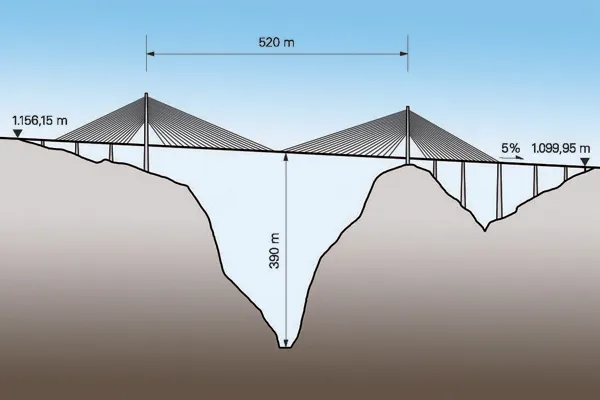A series of major project tenders are opening in Brazil. The Brazilian Government has announced five new road tenders to be launched in 2014. The highway sections run for a total distance of some 2,625km. This programme of works will lengthen the country’s highway network by some 2,282km, with the work costing an impressive US$7.39 billion in all.
April 7, 2014
Read time: 2 mins
A series of major project tenders are opening in Brazil. The Brazilian Government has announced five new road tenders to be launched in 2014.
The highway sections run for a Total distance of some 2,625km. This programme of works will lengthen the country’s highway network by some 2,282km, with the work costing an impressive US$7.39 billion in all. The roads include the BR-163, BR-364 and BR-153 in the Central West region, and the BR-476 stretch in the South, in addition to the Rio-Niteroi Bridge in Rio de Janeiro.
The road concession packages will be for 30 years. The tenders are expected to take place in the second half of 2014. Many of the new highway sections will help develop Brazil’s grain industry, improving transport and logistics. The new road connections will save an estimated $913 million/year on transport from 2020 and relieve the pressure on the Santos, São Paulo and Paranagua ports.
The majority of the expansion work will be carried out in the first five years of the contracts being awarded. Meanwhile in São Paulo, a tender is being called by state highway company2529 Dersa for the consultancy for the economic financing phase of the Santos-Guarujá tunnel. The project looks likely to cost some $783 million, according to a report by Business News Americas.
The highway sections run for a Total distance of some 2,625km. This programme of works will lengthen the country’s highway network by some 2,282km, with the work costing an impressive US$7.39 billion in all. The roads include the BR-163, BR-364 and BR-153 in the Central West region, and the BR-476 stretch in the South, in addition to the Rio-Niteroi Bridge in Rio de Janeiro.
The road concession packages will be for 30 years. The tenders are expected to take place in the second half of 2014. Many of the new highway sections will help develop Brazil’s grain industry, improving transport and logistics. The new road connections will save an estimated $913 million/year on transport from 2020 and relieve the pressure on the Santos, São Paulo and Paranagua ports.
The majority of the expansion work will be carried out in the first five years of the contracts being awarded. Meanwhile in São Paulo, a tender is being called by state highway company








